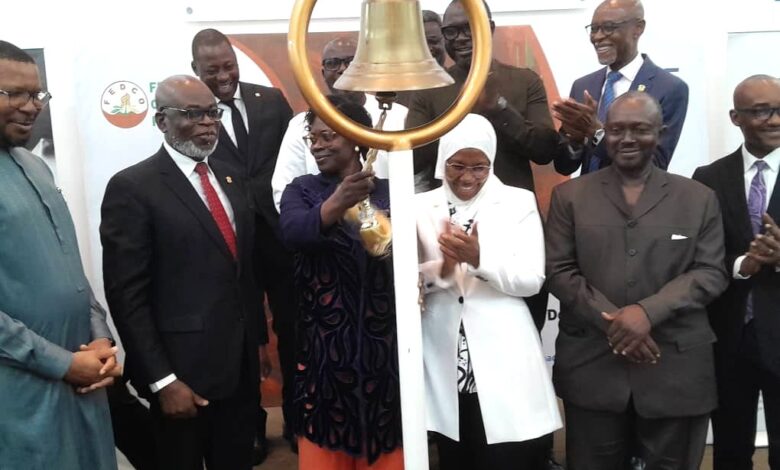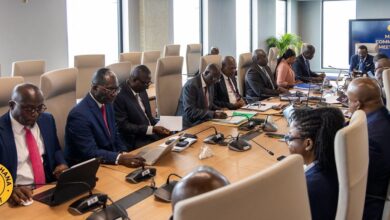Banks Urged to Share Risk Exposure to Deepen Capital Market, Support Business Expansion

In a bid to ease pressure on Ghana’s credit market and unlock new investment pathways, banks in Ghana are warming up to risk-sharing partnerships that could redefine how businesses raise capital.
The growing appetite for capital market instruments, such as commercial papers is positioning the country’s financial sector for greater diversification, transparency, and resilience.
At the forefront of this shift is the Chief Executive Officer of the Ghana Association of Banks (GAB), Mr. John Awuah, who has called for deeper collaboration between banks, institutional investors, and capital market players.
Speaking at the maiden issuance of a commercial paper by Federated Commodities, a licensed cocoa buying company, Mr. Awuah described the development as a “very positive” signal for Ghana’s financial ecosystem, one that introduces transparency, accountability, and more diverse financing structures to the market.
“With the current weak credit environment, this initiative creates an avenue for businesses to open up their books, improve governance, and access affordable capital,” Mr. Awuah said. He noted that businesses that position themselves well by improving financial reporting and governance structures will become more attractive not only to banks but also to broader investor groups.
He stressed that the introduction of commercial papers to Ghana’s market has created a unique opportunity to share lending risks across multiple financial institutions and investors. “Instead of a single bank carrying the full burden of a ₵200 million facility, that risk can now be spread. One bank may take ₵50 million, another bank takes another ₵40 million, and the rest is spread across institutional investors. That’s proper diversification,” he said.
Mr. Awuah also highlighted an MoU between banks and Ghana’s venture capital and private equity community, which allows banks to refer clients to alternative sources of financing when project funding requirements extend beyond debt capacity. “We now have a window where, when reviewing projects, banks can partner with private equity to co-finance—with, say, 30% equity and 70% bank financing,” he explained.
He urged business owners to shift from the traditional “walk-to-the-bank” model for all financing needs, and instead consider more patient, long-term capital via the stock market, venture capital, or private equity—especially for project and growth-stage financing. “Not all capital should sit on your books as debt. That eats away business earnings,” he cautioned.
Drawing on examples from global tech giants, Mr. Awuah emphasized that scaling a business to global heights often involves dilution of ownership in exchange for capital. “Bill Gates owns under 5% of Microsoft today. What matters is control and growth—not holding 100% of a struggling business,” he said.
He lauded the Ghana Stock Exchange for recent positive developments and encouraged regulators, financial institutions, and entrepreneurs to continue working together to strengthen the capital market, enhance credit quality, and foster a healthier, more resilient financial ecosystem.




